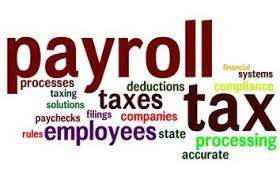On its website, the IRS has said that nonresident aliens and foreign corporations (and partnerships in which either is a partner), that do not have a U.S. trade or business (USTB) due to IRS-provided relief from COVID-19 travel disruptions, will not be subject to the 30% tax on US-source income that is not effectively connected to a USTB.

The global outbreak of the COVID-19 virus (the COVID-19 Emergency) has significantly limited the ability of many individuals to leave the United States. Regardless of whether they are infected with the COVID-19 virus, individuals may have become severely restricted in their movements, including by order of government authorities. Individuals who do not have the COVID-19 virus and attempt to leave the United States may also face canceled flights and disruptions in other forms of transportation, shelter-in-place orders, quarantines, and border closures, or they may feel unsafe traveling during the COVID-19 Emergency due to recommendations to implement social distancing and limit exposure to public spaces (collectively, COVID-19 Emergency Travel Disruptions).
Nonresident alien individuals who perform services or other activities in the United States and foreign corporations who employ individuals or engage individuals as agents to perform services or other activities in the United States may be considered engaged in a U.S. trade or business (USTB). If the individuals performing those services or other activities are temporarily in the United States solely due to COVID-19 Emergency Travel Disruptions, this may cause the nonresident alien or foreign corporation to become engaged in a USTB when the nonresident alien or foreign corporation would not be so engaged were these individuals not present in the United States. Generally, a nonresident alien or foreign corporation that is engaged in a USTB is taxable on its business income connected to that USTB.
If a U.S. income tax treaty applies, however, the nonresident alien individual or foreign corporation generally will not be liable to tax on the income of its USTB (i.e., business profits) unless the business is conducted through a permanent establishment in the United States (PE) such as an office or other fixed base or a dependent agent.
Q1. Will a nonresident alien or foreign corporation, not otherwise engaged in a USTB, be treated as engaged in a USTB as a result of services or other activities conducted by one or more individuals temporarily present in the United States if, but for COVID-19 Emergency Travel Disruptions, those services or other activities would not have been conducted in the United States?
A1. A nonresident alien, foreign corporation, or a partnership in which either is a partner (Affected Person) may choose an uninterrupted period of up to 60 calendar days, beginning on or after February 1, 2020, and on or before April 1, 2020 (the COVID-19 Emergency Period), during which services or other activities conducted in the United States will not be taken into account in determining whether the nonresident alien or foreign corporation is engaged in a USTB, provided that such activities were performed by one or more individuals temporarily present in the United States and would not have been performed in the United States but for COVID-19 Emergency Travel Disruptions. For purposes of these FAQs, an "individual temporarily present in the United States" means an individual who is present in the United States on or after February 1, 2020, and on or before April 1, 2020, and is a nonresident alien, or a U.S. citizen or lawful permanent resident who had a tax home as defined in section 911(d)(3) outside the United States in 2019 and reasonably expects to have a tax home outside the United States in 2020. In addition, to determine the nonresident status of an alien, the relief provided in Rev. Proc. 2020-20 is applicable.
Q2. If a nonresident alien or foreign corporation is engaged in a USTB (taking into account the application of the treatment in Question 1) but otherwise does not carry on such USTB through a PE under an applicable income tax treaty, will the nonresident alien or foreign corporation be treated as conducting business through a PE due to services or other activities conducted by individuals temporarily present in the United States that would not have been conducted in the United States but for COVID-19 Emergency Travel Disruptions?
A2. During an Affected Person's COVID-19 Emergency Period, services or other activities performed by one or more individuals temporarily present in the United States will not be taken into account to determine whether the nonresident or foreign corporation has a PE, provided that the services or other activities of these individuals would not have occurred in the United States but for COVID-19 Emergency Travel Disruptions.
General Information
An Affected Person's income earned during the COVID-19 Emergency Period will not be subject to the 30% gross basis tax imposed under section 871(a) or section 881(a) solely because the Affected Person is not treated as having a USTB or PE under these FAQs.
In all events, the Affected Person should retain contemporaneous documentation to establish the period chosen as the COVID-19 Emergency Period and that the relevant business activities conducted by individuals temporarily present in the United States during the COVID-19 Emergency Period would not have been undertaken in the United States but for COVID-19 Emergency Travel Disruptions. The Affected Person should be prepared to provide that documentation upon request by the IRS.
Nonresident aliens and foreign corporations (including those that are partners in partnerships) may make protective filings of their annual U.S. tax returns, even if they believe they are not required to file for the 2020 taxable year because they were not engaged in a USTB, to avail themselves of the benefits and protections that arise from such filings (such as those relating to deductions, statutes of limitations, and claiming tax treaty-based relief).
The IRS will continue to monitor the evolving effects of the COVID-19 Emergency on nonresident alien individuals and foreign corporations and may update these FAQs as appropriate.
Have an International Tax Problem?
Contact the Tax Lawyers at
Marini & Associates, P.A.
for a FREE Tax HELP Contact us at:
www.TaxAid.com or www.OVDPLaw.com
or Toll Free at 888-8TaxAid
Read more at: Tax Times blog


















